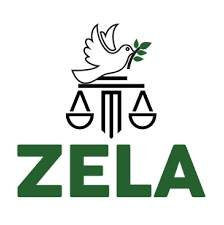Zimbabwe Environmental Law Society (ZELA) says the recently gazetted Statutory Instrument (SI) 150 of 2023 appears to have been rushed through without adequate stakeholder consultations.
The government gazetted Statutory Instrument (SI) 150 of 2023 in August 2023 which is a set of regulations meant to streamline the management and control of carbon credit trading projects in Zimbabwe.
In a Legal analysis of Zimbabwe’s Carbon Credits Trading Regulation, ZELA said the regulations appear to have been rushed through and gazetted by the relevant Ministry.
“There seems to have been limited stakeholder consultation although, in fairness, the Government through the Ministry of Environment, Climate, Tourism and Hospitality Industry had indicated what was to come when it issued the Carbon Credit Framework for Zimbabwe in February 2023. The issue of carbon credits affects many stakeholders including foreign and local investors, local communities, and local authorities such as urban councils and rural district councils,” they said.
ZELA said Zimbabwe does not have specific legislation dealing with climate change issues hence it would have been desirable for the government to first put in place a law dealing specifically with climate change given that carbon credits squarely fall under climate change.
They said no publicly available evidence, reports or literature shows that widespread public consultations were conducted before the regulations were gazetted.
“There is a measure of protections and benefits accorded to local communities in the Regulations. Firstly, the community is entitled to a quarter of the 70 percent share which accrues to the investor. The funds must be invested in the community in consultation with the local authority. Secondly, a project proponent is required to carry out feasibility studies which include adequate and meaningful consultations with the affected and interested parties before the project is implemented. This undoubtedly includes communities,” said ZELA.
They said the regulations have detailed guidelines for stakeholder and public participation.
“The project proponent is required to work closely with the Ministry and other Government stakeholders to ensure that public consultation is done. Public consultation must be held in the presence of a government official, or agency as recommended by the Designated National Authority (DNA). Fourthly, in all projects involving local communities, prior informed consent by each participant or household representative shall be mandatory and shall be clearly outlined in the Stakeholder and Public Participation Plan.”
ZELA said this is highly progressive and follows similar protections afforded to communities in terms of Environmental Management which provides for prior informed consent (PIC) concerning local communities.
“PIC ensures that communities must receive complete information about the project before they can be asked to consent to it. The presence of government officials at meetings with the community may, if properly implemented, act as a guarantee that the community members receive complete information on the project and that their rights will be respected,” they said.
ZELA said the distribution of proceeds or benefits is regulated in terms of Section 12 and the Seventh Schedule to the Regulations.
“The regulations state that for the first 10 years of the carbon credit trading project, the share proceeds shall be allocated to beneficiaries as follows; 70 percent to the project proponent and 30 percent to the Environmental Levy. The 70 percent of the project proponent is entitled to retain must however be shared with the community. The community gets a quarter (25percent) of that 70 percent which is supposed to be invested in the community in consultation with the Local Authority. This means the community in consultation with the local authority may need to identify projects for investment that would benefit the community,” they said.
ZELA said from a community perspective, the fact that the local community will get a quarter of what the project proponent/investor receives seems to be fair and progressive.
“This might be viewed as a significant improvement on revenue sharing arrangements as compared to existing voluntary projects,” they said.
Meanwhile, ZELA said considering that climate change affects everyone in the country, the law should compel the Government to be transparent and accountable to the public about carbon credits and their impact on greenhouse gas emissions.
“While confidentiality and non-disclosure provisions are important for the protection of commercially sensitive information and data, they should not be used as a way to deprive stakeholders of other classes of information that are vital for the public good or for promoting transparency and accountability in the carbon credit trading sector,” they said.

